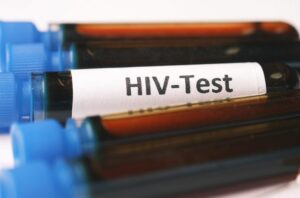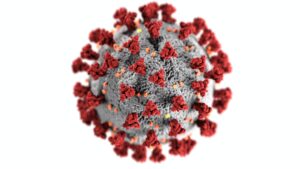HIV, or human immunodeficiency virus, is a viral infection that attacks the body’s immune system, which is responsible for fighting off infections and diseases. Without treatment, HIV can lead to a weakened immune system and eventually progress to AIDS, or acquired immunodeficiency syndrome.
HIV Transmission
HIV is transmitted through the exchange of bodily fluids, such as blood, semen, vaginal fluids, and breast milk. The most common modes of transmission are through unprotected sexual contact, sharing needles or other injection equipment, and from mother to child during pregnancy, childbirth, or breastfeeding.
Treatment-HIV
There is no cure for HIV, but there are effective treatments available that can help people living with HIV to manage their infection and live long, healthy lives. These treatments, called antiretroviral therapy or ART, work by reducing the amount of virus in the body, allowing the immune system to function better and preventing the progression to AIDS.
It’s important to get tested for HIV if you think you may have been exposed to the virus. Early detecti on and treatment can help prevent the spread of HIV to others and can improve health outcomes for people living with HIV.
on and treatment can help prevent the spread of HIV to others and can improve health outcomes for people living with HIV.
Western blot test is confirmatory test for HIV after the ELISA test
Top three Major test to detect the HIV disease are
Antibody tests,
Antigen/antibody tests, and
Nucleic acid tests
Prevention
Prevention methods such as practicing safe sex by using condoms, avoiding sharing needles or other injection equipment, and taking pre-exposure prophylaxis or PrEP for people at high risk of HIV can also help reduce the spread of the virus.
Living with HIV can be challenging, but it’s important to know that people living with HIV can lead fulfilling lives with proper treatment and care. Stigma and discrimination towards people living with HIV still exist in some parts of the world, and it’s important to fight against these attitudes and work towards a world where everyone is treated with dignity and respect.
Symptoms
HIV, or human immunodeficiency virus, is a viral infection that attacks the body’s immune system, which is responsible for fighting off infections and diseases. The symptoms of HIV can vary widely, and some people may not experience any symptoms at all in the early stages of infection. However, the most common symptoms of HIV include:
Fever and chills
Fatigue and weakness
Sore throat and swollen glands
Rash
Night sweats
Muscle aches and joint pain
Nausea, vomiting, and diarrhea
Headache
These symptoms may appear within a few weeks of infection and can last for a few days to several weeks. After the initial infection, some people may go through a period of latency, during which they may not experience any symptoms for years.
Solution
There is currently no cure for HIV, but there are effective treatments available that can help people living with HIV to manage their infection and live long, healthy lives. These treatments, called antiretroviral therapy or ART, work by reducing the amount of virus in the body, allowing the immune system to function better and preventing the progression to AIDS.
ART involves taking a combination of medications that must be taken every day for the rest of the person’s life. The medications can cause side effects, but these are usually mild and can be managed with other medications or lifestyle changes.
It’s important to get tested for HIV if you think you may have been exposed to the virus. Early detection and treatment can help prevent the spread of HIV to others and can improve health outcomes for people living with HIV. Prevention methods such as practicing safe sex by using condoms, avoiding sharing needles or other injection equipment, and taking pre-exposure prophylaxis or PrEP for people at high risk of HIV can also help reduce the spread of the virus.
Conclusion
In conclusion, while HIV can have a range of symptoms, early detection and effective treatment with antiretroviral therapy can help people living with HIV to manage their infection and live long, healthy lives. Prevention methods such as safe sex and PrEP are also important for reducing the spread of the virus.
